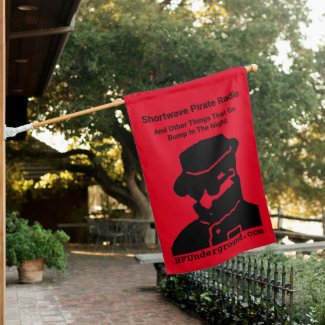The New York Times
September 28, 2012
F.C.C. Approves Auction Process for Spectrum
By EDWARD WYATT
WASHINGTON — The Federal Communications Commission gave preliminary approval on Friday to a process to pay television broadcasters to voluntarily give up some of their public airwaves, which then would be auctioned to cellphone companies for wireless Internet service.
The commission voted 5-0 to issue the proposed rules for what it calls incentive auctions, in which a portion of the proceeds would be paid to the broadcasters that give up licenses to airwaves, or spectrum. Those rules will now be put out for several months of public comment before being finalized.
F.C.C. officials said the incentive auctions themselves were unlikely to take place before 2014 at the earliest. The F.C.C. and Congress have estimated that the incentive auction process could generate $15 billion, $7 billion of which would be used to build a nationwide emergency communications network for public safety officials.
The process of reclaiming and auctioning spectrum that is controlled by broadcasters is a major initiative of both the Obama administration and the F.C.C. chairman, Julius Genachowski. The idea of paying television broadcasters to give up airwaves for use in wireless networks was written into law in February through the Middle Class Tax Relief and Job Creation Act.
The F.C.C. and the White House have been promoting the idea that additional airwaves are needed for commercial use because of the rapid growth in smartphones, tablet computers and other devices whose use of video and other applications places heavy demand on wireless networks.
The F.C.C. estimates that mobile broadband traffic will increase up to 35-fold by 2015. Without additional spectrum, the commission says, consumers can expect connection delays, more dropped calls and slower downloads of data.
Television broadcasters, whose major trade group disputes the notion that there is a spectrum shortage, have opposed many aspects of the incentive auction plan. The transition of broadcast signals several years ago from analog to digital format freed up a considerable amount of airwaves, which was auctioned off by the F.C.C. in 2008. But broadcasters assert that much of that spectrum has not yet been put into use by the cellphone companies that bought it.
Mr. Genachowski said that the proposed incentive auction rules represent “a big win for innovation” of the type that has made iPads, Android-powered phones and widespread Wi-Fi networks a reality.
“One of the ways we’re now leading the world is in the deployment of 4G,” or fourth-generation wireless service, he said. “The U.S. is the global test bed for 4G apps and services. But we won’t be able to seize that advantage” without making additional wireless spectrum available.
The F.C.C.’s proposed rules include other changes in addition to auctions, including moving the location of some broadcasters to new spots on the electromagnetic spectrum, a process referred to as repacking. Those movements would help to create contiguous bands of airwaves, which because of their physical characteristics are more valuable to wireless companies than are scattered bands of spectrum.
In addition to reclaiming airwaves from broadcasters, Mr. Genachowski and the Obama administration have said that they will work to free up portions of the airwaves that are currently set aside for use by the government, including the military.
Mr. Genachowski has said that Pentagon officials have indicated they are willing to participate in that effort, although publicly several military officials have warned that giving up spectrum could endanger military communications and weapons systems.
Some major broadcast groups, including CBS, which owns more than two dozen broadcast channels around the country, have said that they do not intend to give up their broadcast spectrum. But Mr. Genachowski said he believed there were numerous small broadcasters, particularly in urban areas, whose low profit margins and lack of original programming were likely to participate in the incentive auctions.
The F.C.C. on Friday also voted to approve a proposal to review its current rules on how much spectrum an individual company is allowed to control in a given geographic area.
Those proposed rules are intended to preserve competition among wireless companies in areas across the country by making sure that no company gains a monopoly in a given market. That initiative that has taken on increased urgency at the commission in recent years as the two largest wireless companies, Verizon and AT&T, have gained market share and consolidated their dominance, particularly in many large cities.



